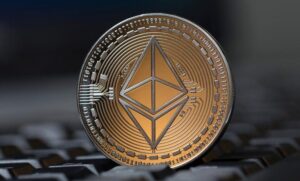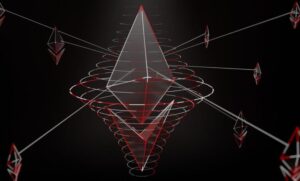
India, officially known as the Republic of India, is a diverse and vibrant country located in South Asia. With a rich history spanning thousands of years, India has been the birthplace of major religions, a center of trade and cultural exchange, and a land of great empires and dynasties. From ancient civilizations to colonialism and independence, India’s history is a tapestry of fascinating events and achievements. In this article, we will delve into the facts and delve into the captivating history of India, covering its ancient civilizations, empires, cultural contributions, struggle for independence, and its modern-day significance.
Ancient Civilizations:
India has a deep-rooted history that dates back to the Indus Valley Civilization, one of the world’s earliest urban civilizations. The Indus Valley Civilization flourished around 2500 BCE and left behind impressive archaeological sites such as Harappa and Mohenjo-daro. It showcased advanced urban planning, sophisticated drainage systems, and a script that is yet to be fully deciphered.
Vedic Period:
The Vedic period, starting around 1500 BCE, is characterized by the composition of the Vedas, the oldest sacred texts of Hinduism. It was a time of cultural and religious development, with rituals, hymns, and philosophical ideas taking shape. The caste system and the concepts of dharma and karma also emerged during this period.
Maurya Empire:
The Maurya Empire, founded by Chandragupta Maurya in the 4th century BCE, was one of the largest and most powerful empires in ancient India. Under the rule of Emperor Ashoka, the Maurya Empire reached its height, promoting Buddhism and establishing a vast network of governance and trade.
Gupta Empire:
The Gupta Empire, which existed from the 4th to the 6th century CE, is often referred to as India’s Golden Age. It was a period of significant advancements in art, science, mathematics, literature, and philosophy. The Gupta Empire left a lasting cultural and intellectual legacy, with notable
Medieval Period:
The medieval period in India witnessed the rise and fall of various dynasties and kingdoms. The Delhi Sultanate, established in the 13th century by Muslim rulers, brought significant changes in governance and society. The Mughal Empire, founded by Babur in the 16th century, brought about a golden era of art, architecture, and cultural fusion.
Colonialism and British Rule:
The arrival of European powers, particularly the British East India Company, marked a significant turning point in Indian history. The British gradually gained control over large parts of India and established the British Raj in the 19th century. India faced exploitation, economic changes, and the rise of nationalist movements against colonial rule.
Indian Independence Movement:
The 20th century witnessed a powerful and widespread movement for Indian independence. Led by iconic figures like Mahatma Gandhi, Jawaharlal Nehru, and Subhash Chandra Bose, Indians fought for their rights, protested against discriminatory laws, and demanded self-rule. The nonviolent resistance and civil disobedience movements played a crucial role in achieving independence from British rule in 1947.
Partition and Formation of India and Pakistan:
The end of British rule resulted in the partition of India along religious lines, leading to the creation of the independent nations of India and Pakistan. The partition, accompanied by communal violence, mass migrations, and displacement, remains a significant event in the history of both countries.
Republic of India:
On January 26, 1950, India adopted its constitution and became a sovereign, democratic republic. The country implemented a parliamentary system of governance, with a President as the head of state and a Prime Minister as the head of government. India’s constitution enshrines principles of justice, equality, and secularism.
Cultural Contributions:
India is renowned for its diverse cultural heritage, encompassing art, music, dance, literature, and cuisine. It has been the birthplace of major religions such as Hinduism, Buddhism, Jainism, and Sikhism. Indian classical music, dance forms like Bharatanatyam and Kathak, and the ancient science of Ayurveda have gained global recognition.
Economic Growth and Technological Advancements:
In recent decades, India has experienced significant economic growth and technological advancements. It has emerged as a global player in industries such as information technology, pharmaceuticals, and automotive manufacturing. The service sector, including IT outsourcing, has contributed to India’s economic development.
Social Challenges and Progress:
India, while making strides in various fields, faces challenges such as poverty, gender inequality, religious tensions, and caste discrimination. Efforts have been made to address these issues through social reforms, affirmative action, and policies promoting education and women’s empowerment.
Nuclear Power and Space Exploration:
India has made significant advancements in nuclear energy and space exploration. It is one of the few countries with indigenous nuclear power capabilities. The Indian Space Research Organisation (ISRO) has achieved notable milestones, including lunar and Mars missions, showcasing India’s technological prowess.
Unity in Diversity:
India is a diverse nation, with numerous languages, religions, and cultural traditions coexisting harmoniously. It is often referred to as the land of “unity in diversity” due to the rich tapestry of cultures, traditions, and beliefs that contribute to the country’s vibrant mosaic.
Modern-day India:
Today, India is the world’s largest democracy, with a population exceeding 1.3 billion. It is a member of prominent international organizations like the United Nations and plays an active role in global affairs. India continues to make advancements in various fields, including science, technology, medicine, and arts.
Tourism and Heritage Sites:
India is a treasure trove of architectural wonders and UNESCO World Heritage sites. From the majestic Taj Mahal to the intricate temples of Khajuraho, the spiritual city of Varanasi, and the ancient cave complexes of Ajanta and Ellora, India offers a plethora of destinations for history enthusiasts and travelers seeking cultural immersion.
Yoga and Meditation:
India is the birthplace of yoga and meditation, ancient practices that promote physical, mental, and spiritual well-being. These practices have gained popularity worldwide, attracting millions of people to India to learn from experienced gurus and immerse themselves in the serene ashrams and retreat centers.
Bollywood and Indian Cinema:
Indian cinema, popularly known as Bollywood, is one of the largest film industries in the world. Known for its colorful musicals, captivating storytelling, and larger-than-life productions, Bollywood has become a global phenomenon, reaching audiences far beyond India’s borders.
Festivals and Celebrations:
India is renowned for its vibrant festivals and celebrations, which reflect the country’s diverse cultural fabric. Diwali, Holi, Eid, Christmas, and many regional festivals are celebrated with great enthusiasm, showcasing the unity amidst diversity and offering a glimpse into India’s rich cultural heritage.
Impact on Global Economy:
India has emerged as one of the world’s fastest-growing economies, with a burgeoning middle class and a thriving consumer market. It has become a hub for outsourcing, attracting global businesses in various sectors. India’s technological advancements, entrepreneurial spirit, and skilled workforce contribute to its economic growth and global influence.
In conclusion, India’s history is a fascinating journey through time, encompassing ancient civilizations, dynasties, colonialism, and independence. Its cultural richness, intellectual contributions, and economic growth have shaped its present and positioned it as a significant player on the global stage. From its diverse traditions to its technological advancements, India continues to captivate the world with its enduring heritage and spirit of innovation.






